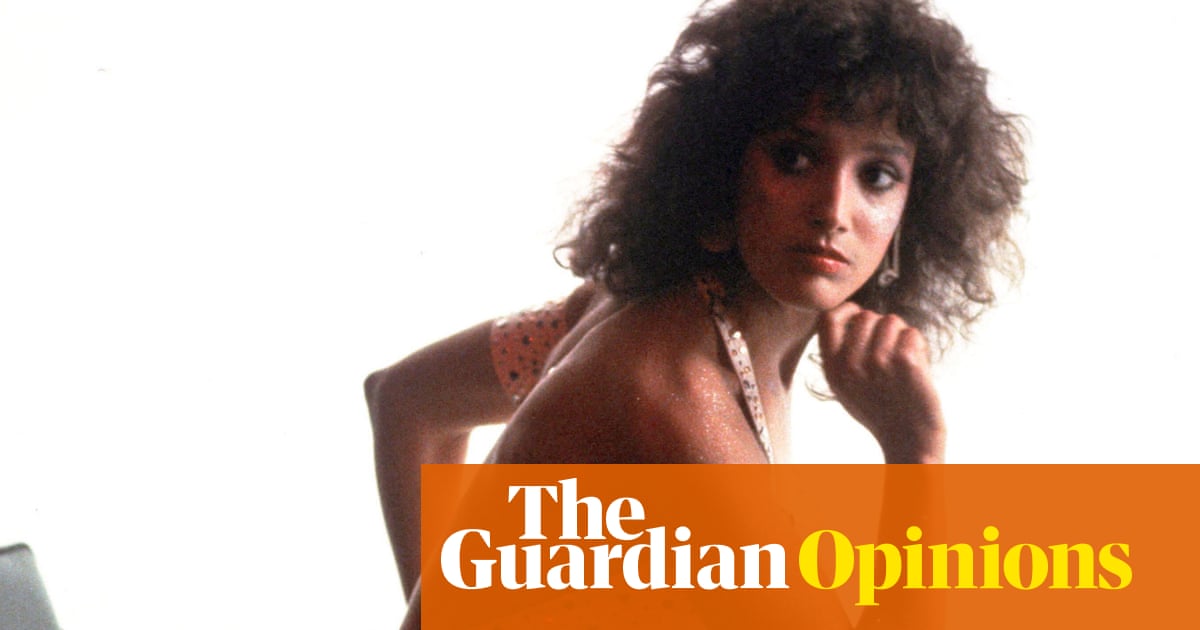When I was 16 I eagerly auditioned for our high school musical, singing a verse and the chorus from the Irene Cara song Flashdance … What a Feeling. Instead of taking the music teacher’s advice and picking something suitable for my voice, I chose this song because I secretly wanted to be just a dancer with a welding mask – just like the star of the film.
Preparations were intense. I spent hours rehearsing at home, nailing down the lyrics and watching the same scene over and over on my treasured VHS copy of Flashdance. I would have attempted some of the dance moves too but it was clear to everyone that was never going to be to my advantage.
My friendship group auditioned for the handful of lead roles and I had visions of myself up on stage, belting out a song alongside the cute boy in my year I had a crush on.
The day finally came when the cast list was posted near the music room – I can still remember the churning in my stomach as we raced down at lunch to se.
We were all given parts, because inclusion mattered, but, while most of my friends were given key singing roles, I was cast in the only speaking part that didn’t include a song. I wasn’t much of an actor either but it didn’t stop me loving every second on stage, even knowing that the only thing I’d mastered was remembering my lines.
That audition has haunted me for years and I’ve perfected the art of dodging public singing ever since. Except for the odd Happy Birthday or someone hearing me singing too loud in the shower, my voice is rarely tested.
Until, that is, I found myself at CresFest, a small music festival in Creswick, north-westVictoria. The festival is dedicated to celebrating the joy of music and there are performances from local and international bands, workshops and choral performances.
I’d tagged along with three friends who sing inthe choir my partner belonged to. When he died in 2020 the choir sang at his memorial so I always felt like a sort of honorary, silent member.
When we checked into our accommodation my friends told me about the community choir singalong that night. Anyone who had bought a ticket to the weekend’s events could turn up at the church and sing, learning four songs to perform at the festival’s last event.
I was settling into a night on the couch with a book when my friends suggested I join them. I’m not sure why I agreed. Perhaps I saw it as my chance to witness the inner workings of a choir, something that had always seemed so far away from my experience.
Driving down the dimly lit country road to that rehearsal, I was nervous. Nervous in that way I hadn’t been since I was 16. As what-ifs swirled around my head, I imagined someone overhearing my out-of-tune voice and sending me packing.
The church was heaving with people when we arrived. We were ushered into areas, depending on our voices. I looked lost until my friend told me to stay with her. It turned out I would be an alto for the night.
I huddled at the back of the pack and, as I took the lyrics from a volunteer, I decided to mime, reasoning that if nobody could hear me singing out of tune then it didn’t matter if I was there.
With a hundred or so singers from choirs across Victoria jammed into the church, it was slow going learning the different parts of the songs. The sopranos were in one corner, basses in the other, with the altos and tenors taking up the final two spots.
The wonder of 100 harmonising voices soon began to weave its magic and I looked across at my friend, whose voice I could hear over the others around me. She smiled and it was all I needed. Instead of miming, actual notes began to flow out of my mouth.
We sang together for an hour. Many of us strangers, we’d turned up just to be part of something. Something transitory and fleeting. I knew I wouldn’t even remember the lyrics when I got outside. But I didn’t care. I’d sung in public with a room of people and survived. Irene Cara would have been proud.
Nova Weetman is an award-winning children’s author. Her memoir, Love, Death & Other Scenes, is published by UQP
